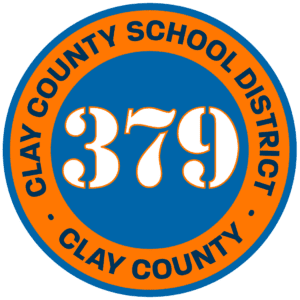When Amanda Speltz was working full time as a Mom, she never intended to homeschool. Working nights, she tired from being away from her 1-year-old and instead got a part-time day job.
“I was just going to do that until my kids were in school,” she said. Now a Mom to six, she said that changed when it was time for her oldest, now 10, to enter kindergarten.
“He was 5 and we were planning kindergarten roundup and then you could choose whole day or half day and it just made me feel … it didn’t feel right to send him somewhere else,” she said. “I wanted to be with him.”
Around the same time, she and her husband, Chris, became acquainted with a local family who homeschooled.
“Their kids were just amazing, so mature,” she said. “They were so helpful and did school in the morning then worked on the farm in the afternoon. Chris said, ‘I don’t know what she’s doing but maybe you should see what this homeschool thing is all about.’ And that planted a seed.”
From there, Speltz began learning about different homeschooling options and a local CO-OP where the Moms took turns teaching and kids could socialize.
“It makes sense for us. The learning there is a lot of repetition, learning through song and reading to the kids,” she said of her farm-based family. “I signed on and we did it for two years.”
Next, Speltz started her own CO-OP for an option that was local to both meet with other like-minded families, and to add variety to their schooldays. However, with most of the families in Chapman, it didn’t stick and the Speltz family spent two years learning alone.
But after the two years, she was approached by different local Moms, asking if she still had a CO-OP. After being asked a few times, she decided to get the group back up and running.
“I said surely we can make something work. And now it works really well. It gives the kids something to look forward to but it’s not too overwhelming.”

Each month the group meets at the Countryside Church at Broughton to sing a hymn, do PE, show and tell – a form of public speaking – and a lesson from one of the Moms. Finally they eat lunch and play before heading home for nap times. Younger kids are kept occupied through provided daycare, she said.
In total, there are around 10 families in the CO-OP kids, with 21 school-aged kids.
“We have the freedom to teach them with emphasis on what we think is important. We read the Bible every day and learn about different Saints,” she said. “As a farm family the kids are learning how a business operates. They see the stress and they get to meet each of the different farmers who are our livelihood.”
Now with her oldest, Kellen, in 5th grade, Speltz said they have began a different journey, working through a certified program in Salina. Meeting once a week for 24 weeks, Kellen learns parts of speech, handwriting, English, history, science, math, and Latin through the group. They also do a fine art project and a science experiment.
Rece, 8, Pete, 6, and Kora, 5, also travel to Salina, while the littles, Jolee, 3, and Susanna, 11 months, stay behind with Grandma.
“Recently they learned to play a tin whistle, which was testing my sanity on the way home. All four were playing their tin whistles,” she laughed.
In total, Speltz said she spends four-five hours on school with the kids each day. While the youngest have school for about an hour, the older kids will do more in-depth work. Once schooling is complete they help on the farm, do chores, or have free time.
“They do whatever Chris needs help with, they’re kind of his extra set of hands,” she said. “The boys have gotten so good at operating equipment that he doesn’t call me for help anymore, he asks for one of them.”
She added that if it’s above freezing, the kids spend most of their time outside.

“They help with the animals, we have calves, a pony, chickens, dogs, cows, and the boys are always taking apart bikes and putting them together,” she said. “They like building forts. They’re always stealing my good lumber.”
The family’s main source of income is cutting silage, or cattle feed, which they do as a unit. From riding in the forage harvesters, to helping in the grain truck or semi, the kids are on-site to cut alfalfa, wheat, oats, corn, and sorghum.
During harvest, school is still done in the morning, which may include audiobooks in the truck. However, the family schedules their studies to be heavier in non-harvest months.
“We get really busy in late July until early November cutting. We are always going from one farm to the next, the kids just love it,” she said. “It’s kind of intense so in those months of the fall we do memory work and they’re in the silage truck with me. Then in November we dig out the books and do things more in depth when we have more time.”
Speltz said she also adjusts lessons for their everyday life, for instance, cooking dinner includes science and math. And when she needed more chicken nesting boxes, she enlisted the kids who could use it as a math lesson.
“The more productive jobs, when they feel like it’s not just busy work, they get so much more pride in it.” She added that they gift practical items to the kids, so the boys have tool sets and like to use them fixing up broken lawnmowers or rototillers they are gifted.
“They just thrive on that.”
Finally, Speltz said some of the basics are the most-loved, like reading to her kids which she said is an all-around favorite.
“They love to be read to. We started Little House on the Prairie and we’ll do two chapters and they beg for more. Then I’ll do another one and they’ll beg for more.”













